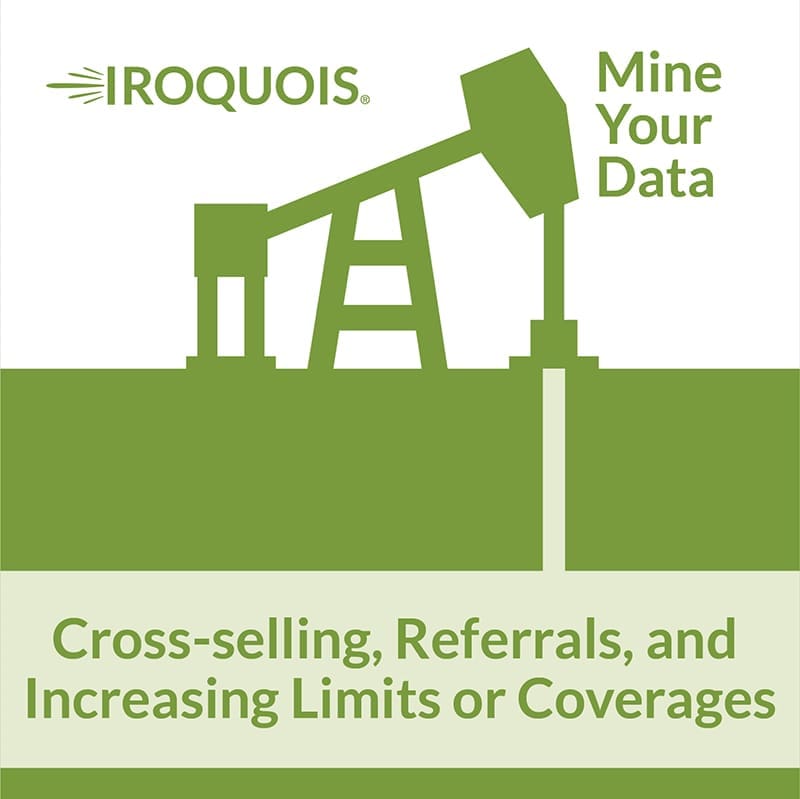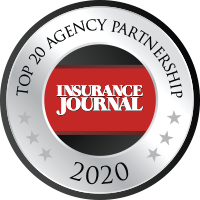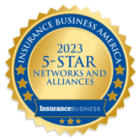If your agency has been looking for a way to get more out of the data you collect, look no further. Raution Jaiswal, Founder of InsuredMine joins the Trusted Advisor this week and fills us in on how data can drive business. From gaining insight on customer relations to seeing where opportunities lie in your current book of business, Raution shows us how you can use data to build your business.
Edwin K. Morris (3s):
Welcome to the trusted advisor podcast brought to you by Iroquois group. Iroquois is your trusted advisor in all things insurance. I am Edwin K. Morris. With us today is Raution Jaiswal. Raution as the co-founder and CEO of InsuredMine, which is an InsureTech startup that focuses on sales and marketing automation through data analytics. InsuredMine is a product that Raution has formed to compliment the agency workforce rather than replace it. Prior to InsuredMine, Raution spent years in the business sectors of finance and technology consulting on large scale solutions.
Edwin K. Morris (45s):
So we’re talking about data and, and how that affects organizations, but what’s the context of how insurance defines data to begin with.
Raution Jaiswal (56s):
Yeah, that’s a very interesting question. You know, data it’s. So to the word it’s, it’s kind of all all over the place because data is in a way, it’s what we interact with our clients on a day-to-day basis. That’s data. Data is about what I need to know about my client, which is not interaction, but I need to pull it from different directions. That’s data. Data is about what I need to sell him, having the pre knowledge about the market, about the risk of that market is data. So data is a very generic word used for a lot of things.
Raution Jaiswal (1m 42s):
So when we say that data is empowering, you know, it’s used in such a generic way that, you know, it literally loses its sense. And once we start double-clicking on that, that’s where we realize, okay, what exactly is this data about? My customer? Is the data about the product? Is the data about in context of something? That’s where it starts getting its meaning.
Edwin K. Morris (2m 8s):
Well, that’s kind of cool because it sounds like to me that the data is, has different importance depending on the usage.
Raution Jaiswal (2m 18s):
Absolutely.
Edwin K. Morris (2m 18s):
Can you give us an idea of what, how that role, how that importance of what data is valuable versus not to an organization?
Raution Jaiswal (2m 27s):
Well, let me give you an analogic that I was talking to Dr. Billy Williams, you know, so he’s an investor in several agencies and, you know, he runs a whole workshop of his own, you know, in that session we were talking about, and I was saying that data is like minerals. If you do not extract it, you are walking all over it. So that’s why it’s like, if I am sending an email to my client, I just sent him an and you know, agencies, they are desperately waiting for the phone to ring. That’s how the business model is.
Raution Jaiswal (3m 8s):
But now if I am giving my agency that power, Hey, you sent him an email three days ago. I can precisely tell you how many times this gentleman has opened your email. I can tell you at what time he opened your email, or you just got a pop up saying he is reading your email right now, that is data. And that is powerful data.
Edwin K. Morris (3m 30s):
So to go back to your concept of the mineral, you really have to become a miner. You have to mine this stuff actively to make it valuable, or get, get the extraction, going back to your term to extract that value.
Raution Jaiswal (3m 45s):
Absolutely. It’s seamlessly plugging in InsuredMine. That’s one of the idea of using the word InsuredMine, because that’s what we say is we are mining into your data.
Edwin K. Morris (3m 57s):
Brilliant. What types of data can be impactful to an agency? We’ve we, you kind of gave us a couple examples, but is there a general bucket of this is really important versus not?
Raution Jaiswal (4m 10s):
When I’m thinking as an agency, what am I looking to do? You know, I’ll code one of my client from pig group, Brent Johnson. So he’s the owner of the agency. And in one of the sessions, he said, you know, two things matter, Raution, with your technology, either you are reducing my cost or increasing my revenue. So if I’m looking at data, those are the two things that data should help me accomplish. Whether with that data, I am making my process more efficient, or I am able to generate more revenue. I’ll give you an example for cross sell 70% of the policy holders who have home insurance buys auto insurance.
Raution Jaiswal (4m 56s):
I can tell you from your data that only 25% you have done that cross sell, which means you got an opportunity where you can step up that 45% out of your remaining bucket of your client, who has mono-line with you.
Edwin K. Morris (5m 13s):
That intelligence is a process, right? In order to extract, you have to know a lot going into how you can manipulate or pull the data out in the ways that are beneficial to understanding. So where does the analytics come in
Raution Jaiswal (5m 26s):
I like that the conversation is now moving from what is data to what is analytics? Because that is a natural progression of saying, okay, when you go to, you know, early day school, you are learning addition, but in a higher level, now you are doing integration. You are doing derivatives, you are doing techno metrics. So this is how that graduation happens is now data is one big lump and analytics is the maturity of that lump to be able to make meaningful insight out of analytics. So I can apply that to my business.
Raution Jaiswal (6m 8s):
And again, analytics now starts forming in different ways. I’ll deviate for a quick second, and then come back to this. Again, we talk to hundreds of agents every month, literally thousands of agents, every year, we are blessed to be in that position that we develop a lot of insight by speaking to the, the agency community. And I’ll tell you what transition we have seen from last five years before the, there was a lot of dependency on agency management system, because that was the system of record. That was the system of activities and operation and everything we were doing. What shift we are seeing that, yes, I need management system.
Raution Jaiswal (6m 53s):
Nobody’s debating that, but there is a heavier focus and reliance on the front end system, like a CRM, a marketing automation, because this data has enabled them to use the system in a way more powerful application than it was earlier. So now this cross sell, this upsells, these renewals, you are able to understand and mine your data to see what my customer needs when he needs it and how he needs it. I’m able to fulfill those service delivery in a way more smarter way, because now you are able to automate, and you can second guess because of this data that has happened, that tectonic shift, because agencies are able to leverage the data and the analytics offered, which is helping
Edwin K. Morris (7m 42s):
Have things become simpler or more complex, do you think, in that realm?
Raution Jaiswal (7m 46s):
Well, I think it depends how you look at it. It is simple if you get it right, because it is helping well, if it is not helping you grow your business, and if it is not helping you optimize your operation, you will not see the value. And you would say, okay, what am I doing? Which is the right question to ask. But what we are seeing year on year, we are seeing a very constant, robust growth because this technology has been able to influence your business like no other factor has.
Edwin K. Morris (8m 20s):
So what’s the three to five year for your strategic view, because you’ve been talking about transformation. What I hear you say is there’s a transformational edge now where we’ve gone from a, a way we used to do business, you know, that program of record, and now we’ve innovated and now we’re, we’re now we’re going in a whole different ability. So what’s the transformation of the future going to look like.
Raution Jaiswal (8m 48s):
Yeah. So to know future, it’s very important we know our past, so that transition can be linked. So when we start, you know, insurance is a very heavy paper-based business that has evolved, not to say that it is still there, it has evolved. And now COVID-19 has gigged on the back to digitize. If one factor that has posed digitization, it’s COVID 19. So there is a silver lining to that. Now having said that, that we have now transitioned from filing cabinet to a fancy digital cabinet or becoming a digital cabinet to say the least, but now empowering those with these CRMs.
Raution Jaiswal (9m 35s):
So with automation, so CRM is the starting point. Automation is the next level of it. The next level, what has got to happen is building that predictability with machine learning, being able to, we are also already starting to see some AI application in our system, whether it’s on the distribution side, whether it’s on the claim side, there is application happening. But if you want to talk really fast pace that three to five years, the key will be not to focus on one specific technology, which will be the game changer, but ability to transition and integrate all these technologies in one platform is going to be the biggest advantage that agencies will have.
Raution Jaiswal (10m 22s):
Today, they literally have to pull their hair If they have to use five different applications,
Edwin K. Morris (10m 26s):
I have to say, I don’t think that’s just an insurance industry issue. I think there’s a lot of different industries that are facing the same challenge. So let’s bring that all back to the present now. tell me about how agencies today that are data-driven what kind of quick wins can they expect?
Raution Jaiswal (10m 45s):
When I look at agencies or when we talk to agencies, I am very clear in my first conversation about, Hey, what pain point are you trying to solve, don’t go and buy a technology, a piece of technology, which is bright and shiny, just because it is bright and shiny, go and buy a piece of technology that is helping you solve a problem. And you prioritize what technology you want to buy based on how critical is the problem, how big is the problem. Once you know what your problems, and there are problems, like whether you are talking about data integrity, whether you have more visibility, whether you are looking for a seamless processes, all these things are challenges within an agency.
Raution Jaiswal (11m 28s):
So now once you have identified the problem, and then you do some research to know what solution I am looking for, that’s when you go. And when we talk about quick-win, I put it in seven processes, I say, you know, don’t go and solve for a feature that, Hey, I need some way to click a button. Don’t do that. What you want to do is you want to clean up your process and just to give you one standard way of starting it: Okay. What is the top of my funnel? What is my lead capture process? Second is what is my lead nurture process? Third is my, what is my sales funnel process?
Raution Jaiswal (12m 8s):
Because everything that you’re nurturing will not convert to a client, maybe 20 or 30%. And so what are you doing with that 70%? So now we’re out out of your sales funnel. Then you have your onboarding process because it’s very important that you are able to create that experience for the clients you have just onboarding. Then your fifth one is about your duration of the process, policy period is how you are nurturing that client. You have nurturing the prospect to convert. Now you need to nurture a client to expand the customer lifetime value, right? And then, which is, and what you’re doing in that period, you are doing a constant review of his risk.
Raution Jaiswal (12m 53s):
You are looking at what, what his cross sell Upsell opportunities will look like, you know, if he has home and auto, can I sell him umbrella? If he, has home and auto and umbrella, can I sell him a life? He just bought a boat. His daughter is turning 16. You know, all things are constantly changing. What am I doing to nurture that? And then comes your period of renewal, your moment of truth. Hey, will this guy stay back with me? Because renewal is like, Holy grail. You know, if I’m able to hold on my business, you know, I’m good. The least favorite is we will, the reality is we will lose clients. What is my process for winbacks?
Raution Jaiswal (13m 34s):
So all these seven process in totality, what are you doing? What technology are you using in this juncture to be able to accomplish all this from the sales to CRM, marketing automation, to engagement, to analytics, to mobile app, to the client, all these pieces become a integral part of your technology tool set that will help you accomplish, because now you are focused on data,
Edwin K. Morris (13m 58s):
You’ve set the foundation that the customer needs to understand their operation thoroughly before they look for the magic bullet, that’s going to fix everything or give them predictive analytics. And on that analytics, I’ve got to ask, do you have a story to wrap us up today of how analytics showed up in a good way?
Raution Jaiswal (14m 18s):
There are multiple, you know, so I’ll, I’ll start with the, it’s a funny one, but you know, it’s very interesting. You don’t know what you don’t know. So one thing with InsuredMine platform, you get to see is a pin drop on InsuredMine on a map, which will say where your clients are. And so this gentleman does a lot of business on, on the North Carolina and in that area. And then suddenly he saw a few pins in Oregon and California and Washington. And he was surprised like, Hey, I don’t do business. Why my client pins are on West coast? And he has been in business for several years, you know, almost two decades, I would say.
Raution Jaiswal (14m 59s):
And so, you know, that was surprising to him. Hey, what about my clients I don’t know? and then once he started digging into that, he realized that was by error, transferred from a carrier to him. So all these years he was getting premium for business that he didn’t even wrote. And, you know, suddenly it could have become a huge liability when the carrier would come back and claim that rather than being able to understand, Hey, this is something I need to fix immediately. So just one example of how you are able to see the value, just because now you’re able to visualize and have analytics, the tools.
Edwin K. Morris (15m 41s):
It’s been a wonder to listen to all that you present. The technology and the information and the intelligence that is of the new way of doing business has gotta be an exciting field. So we wish you well and hopefully we’ll see you back.
Raution Jaiswal (15m 57s):
Absolutely. This was a pleasure. Thank you.
Edwin K. Morris (16m 1s):
Thanks for listening to this edition of the trusted advisor podcast brought to you by Iroquois group. Iroquois, your trusted advisor for all things insurance, and remember get out of the office and sell. I’m Edwin K. Morris. And I invite you to join me for the next edition of the trusted advisor podcast.



